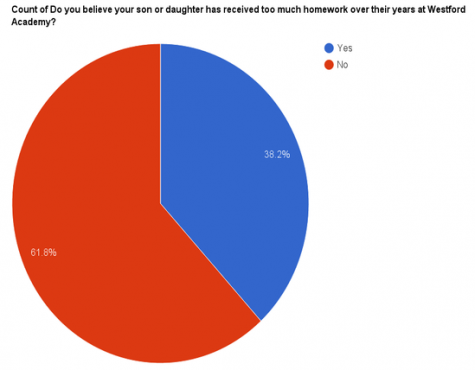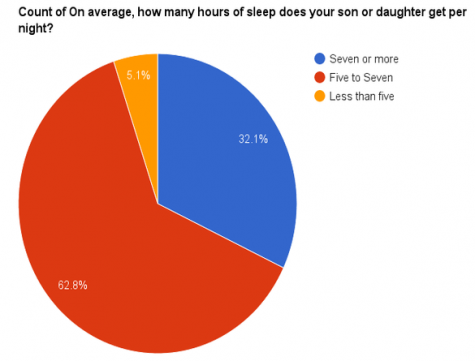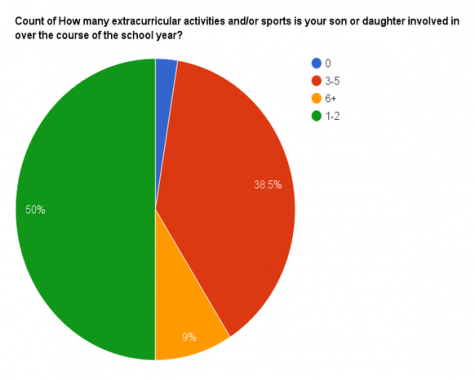WA culture affects stress
January 22, 2016
Whether students at WA or in the United States in general are children of immigrants, first generation families to the U.S., or have lived here for generations, they face an immense pressure to succeed. At WA, this pressure comes in the form of many extracurriculars, part-time jobs, and homework. This leaves students, parents, and faculty to wonder when enough is enough.
A recent poll was sent out to parents of WA seniors asking them about their ethnicity, country of origin, the types of classes their children take, and if they believe their children receive too much or too little homework. While not all the parents of the senior class participated, the information that was gathered from those who did provided a sense of parents’ opinions.

Sixty-one percent did respond that they believe their students do not receive an overwhelming amount of homework, and the parents that answered this question represent various ethnicities. Some recognized that a lot of homework is assigned but responded with indifference to the amount and some even believe it has changed for the better over the past couple of years.
On the other hand, thirty-nine percent of the parents believe that the homework provided is too much for the students to handle.
“It has been critically detrimental to one of my children’s education here at WA. At a juncture which should have lent itself to exploration and challenge, instead sent this student spiraling into a zone of perceived inadequacy and diminishing self-esteem. The stress and anxiety created within this culture set us back years. […] You can’t explore new areas of interest, which may help you determine the following steps in your life [like] higher education, if you have hours of homework,” said senior parent Pamela Tricca.
It seems that ethnicity did not play a huge role in determining opinions about the amount of homework. They varied across culture, but several suggestions for decreasing student stress were provided.
Although there are many who believe WA does not assign too much homework, they did raise a few recommendations for stress alleviation such as a later start to the school day, and a balance of pressure from college prep classes to advanced placement classes.
“[There is] too much pressure at the higher level and not enough at the CP level. We have had to pay privately for writing instruction,” said a senior parent in the survey.
Many also suggested eliminating homework over the holidays and possibly over the weekends, arguing that high school students still need opportunities to be kids.
Those who believed WA gives students too much homework generally discussed the unnatural sleep-deprivation, immense competition, and stress that seem to accompany the expectations for homework. Concerns about self-esteem were abundant and there were suggestions that WA’s approach to homework is old-fashioned.

Many parents agreed on the fact that perfection is the major stressor. John Forcucci recognizes the consequences of WA’s environment to his children’s self-esteem even though he does not see an issue with the amount of work given to his children.
“I don’t think there is too much work but rather too much stress about the work. I believe we’ve led our kids to believe everything is dependent on their being perfect in every regard, including grades and accomplishments. My daughter, […] in many honors and AP courses, believes she’s not that bright. Her comparisons? Near geniuses with a 4.4 GPA,” said Forcucci.
According to the data, the relationship between ethnicity and homework stress seems to be less of the focus. It appears that the major source of pressure and competition seems to derive from the culture of WA itself.
Many WA seniors concluded that the pressure derives less from their parents and more from the expectations they feel they need to fulfill.

“Westford Academy in general […] holds a high standard and expects its students to get good grades on top of being varsity athletes and club presidents and actors and actresses, and that pressure is certainly felt,” said senior Sidney Shea.
WA seniors and their parents seem to feel that WA is in need of a new approach to both success and balancing pressures, and the answer may simply be to not give homework over the weekends or it may be as complicated as starting the school day later.
“I sometimes wish we had a little more breathing room to pursue our own passions, and achieve academic success at the same time,” said senior Taiga Kambara.






